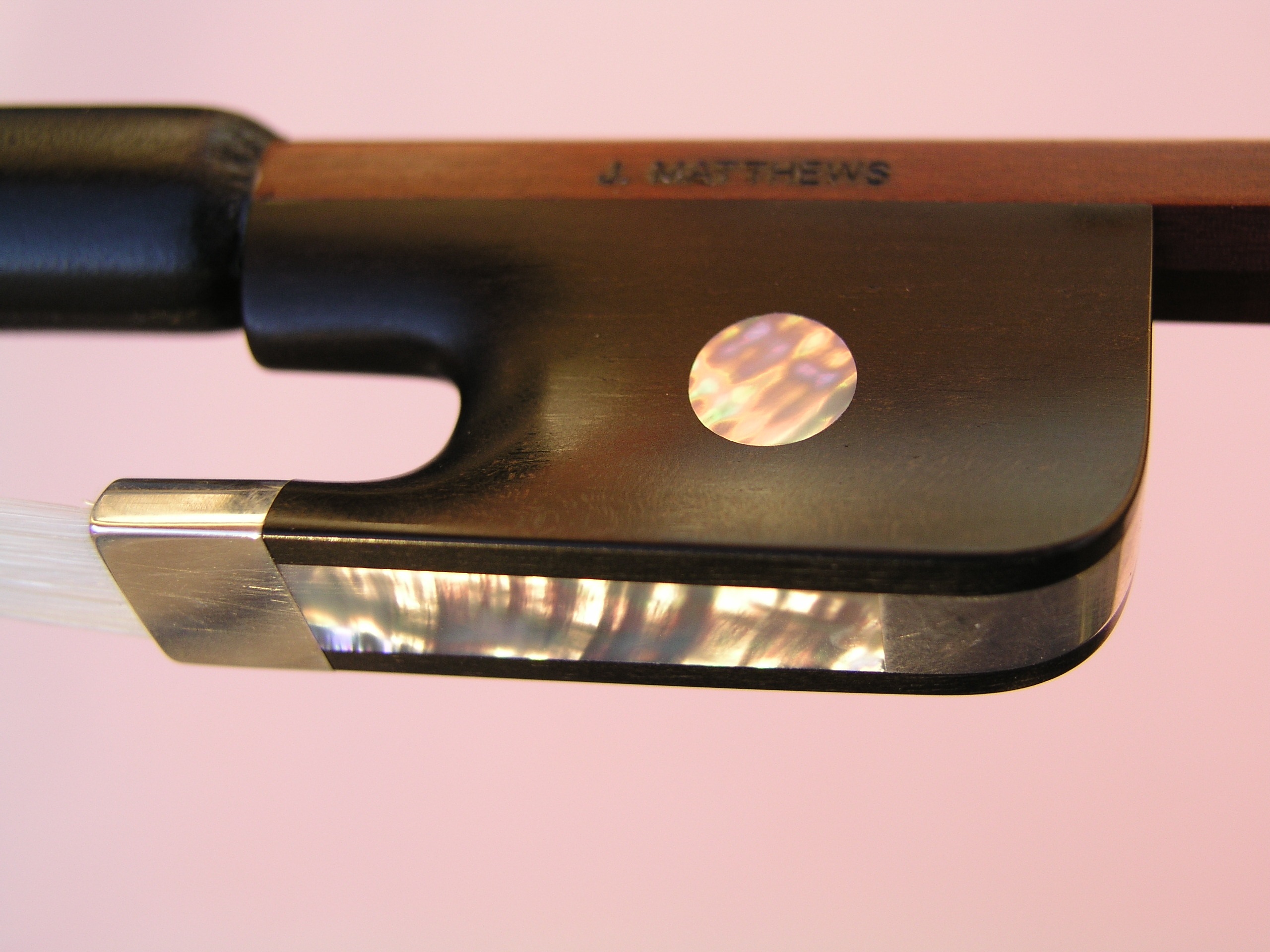
LOCTITE Products Are Music To The Ears Of Master Bowmaker
LONDON, UK / AGILITYPR.NEWS / July 23, 2020 / Having exhausted nearly every option for gluing mother of pearl to ebony hardwood, a leading manufacturer of bows for string instruments struck the right note on discovering the performance characteristics of LOCTITE® 330 from Henkel. This general-purpose structural adhesive, which is ideal for use on dissimilar substrates, has solved the bonding dilemma for John Matthews the Bowmaker, once and for all.
Based in Gosport, John Matthews the Bowmaker has been supplying players of bowed string instruments around the world with industry-leading bows since 1996. Ornate in design, the master craftsman’s bows are made with the benefit of many years’ experience. However, one particular process had long-remained a challenge, namely the successful and reliable adhering of a mother of pearl inlay to the bow’s ebony ‘frog’. The frog is what holds the hair ribbon and gives the bow its tension.
“Over the years we’ve tried everything; superglue was probably the worst,” states John Matthews. “The problem with superglue is that it doesn’t like heat, and after I’ve adhered these two parts together I have to perform a little saw cut. The tiny bit of heat produced by the blade is enough to separate a joint made using superglue. I’ve also tried many general-purpose adhesives, but the joint comes apart after a short time.”
Then, as fortune would have it, a personal recommendation for LOCTITE 330, prompted Mr Matthews to give it a try. “LOCTITE 330 is marvellous; the joint sets really hard,” he states. “In addition, we can work with it shortly afterwards as the adhesive goes off quickly.”
To satisfy his curiosity, Mr Matthews has tried on several occasions to deliberately separate the joint, but a variety of mechanical methods failed to prise the materials apart. “I even boiled the joint in a saucepan for 30 minutes, but it still wouldn’t separate,” he says. “Having tried further techniques, I discovered the joint was so good that the mother of pearl would break up before it separated from the ebony. I was very impressed and will not be using anything else. From experience, I know a lot of bowmakers have the same problem, so it’s good to share the success of this leap forward.”
Mr Matthews produces each bow to order, according to the player’s exact requirements, adjusting factors such as weight, balance and strength accordingly. Most bows take around 10-14 days to complete. Over the years he has produced several hundred bows for players of violins, violas, fiddles, cellos and double bass instruments.
“Bows are underrated items and often get treated as accessories, but people who know what they’re doing realise that a bow can bring an instrument to life and improve a player’s performance, helping him or her to get better work,” says Mr Matthews. “If a player wants to enhance their sound it is far more cost-effective to seek out a better bow rather than pay half a million pounds, or more, for a new violin.”
In contrast, although the cost of a bow produced by Mr Matthews varies depending on specification, a typical price range is around £2,000 to £3,500.
Despite the fact that he describes his mother of pearl inlay as little more than a “piece of fancy decoration”, discovering a product able to adhere it to the ebony frog has been a huge relief.
“In actual fact, the mother of pearl I use is very special as it’s from the Jersey Ormer shell,” says Mr Matthews. “Ormer is found around the Channel Islands, where it is fished for local restaurants. However, it is becoming increasingly rare due to pollution, which is reducing population numbers.”
Many of the famous French bowmakers of the 19th Century used this same type of shell, which they called Ormeaux, making it revered among players of bowed string instruments.
“To be honest, we don’t want to be wasting mother of pearl due to failed adhesive, which is why it’s so great that I’ve found LOCTITE 330,” concludes Mr Matthews.
For more information go to: www.henkel-adhesives.co.uk
-ENDS-

Contacts